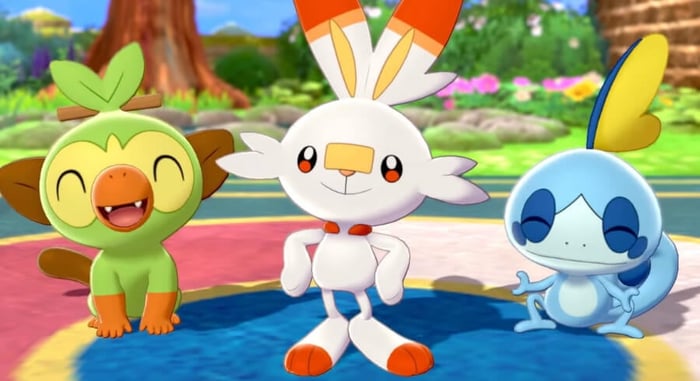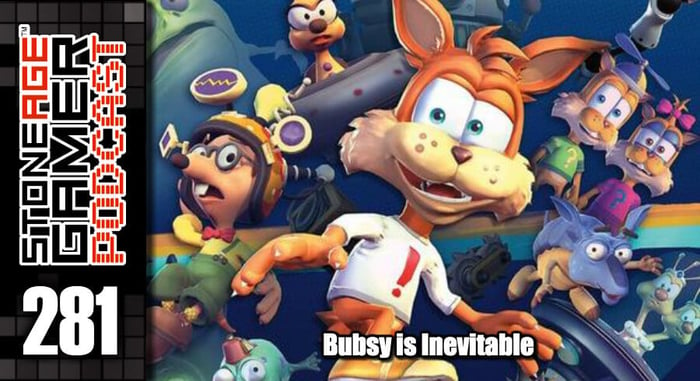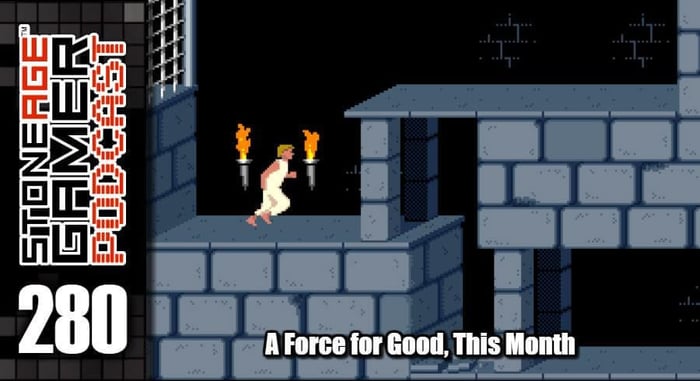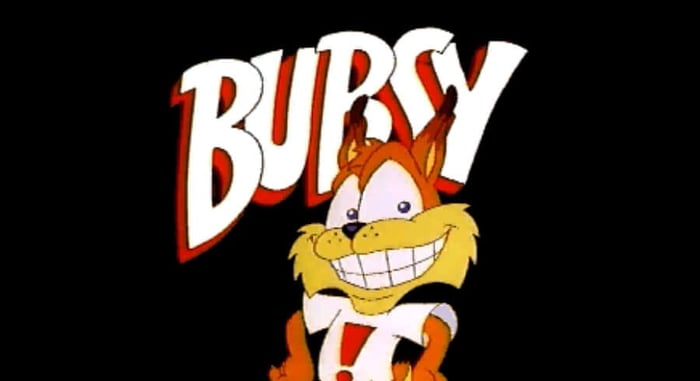
The Pokemon Controversy: An Outsider's Perspective
The People vs. Pokemon
The world of video games has been inundated with no shortage of outrage of late, most loudly centered on the latest Pokemon games releasing for Nintendo Switch. I’ve never been much of a Pokemon fan myself, so watching this whole thing unfold has been rather interesting. Now that the games are out, the fervor seems to have died down considerably (but not entirely. Comment sections are still pretty gross), so I thought it would be fun to take a step back and see if I can actually make sense of this nightmare.
I never enjoy watching a fandom become this toxic, though every time it does it’s a stark reminder that there’s no shortage of toxicity always burbling just under the surface of many of the fandoms of things I like. Remember when Nintendo released the trailer for Metroid Prime: Federation Force? Sure, that was a pretty tone-deaf move on their part, but the aftermath of that trailer was really ugly. Or how about that time Waluigi didn’t make the roster in Super Smash Bros. Ultimate? Or when folks found out the DLC for Street Fighter X Tekken was already on the disc? Granted, none of these fandoms come anywhere near the bottomless volatility of say, the Star Wars fandom (Seriously, if you think The Last Jedi ruined Star Wars, clearly it’s been a while since you watched Attack of the Clones), but this latest round of Pokemon drama reached some particularly nasty levels, and trying to follow the line on how they got there is quite a trip.
So, here’s what I know.
Just the Poke-facts
- Pokemon has always been a primarily handheld franchise. There’s never been a mainline Pokemon game released on a home console, but there’s been an audience for one pretty much the franchise’s inception. People fell in love with the world and its characters and they wanted to see what it would be like to explore said world with the power of a home console behind it. Offshoots happened, like Pokemon XD and Pokemon Stadium, but a full-fledged Pokemon RPG never hit home consoles until this year with Sword and Shield. Decades of fan speculation about what a console Pokemon RPG could be like have been marinating this whole time.
- The Pokemon franchise has always encouraged players to become attached to their favorite Pokemon. It’s all about building a team of monsters you identify with, training them up to be the very best they can be, and by that nature, the player forms a real attachment to them. Sure, they’re fictional creatures who can’t even talk, but I’d take a bullet for Ein from Cowboy Bebop, so who am I to judge? It’s something the series does very well, as there are a great many fans out there of all ages who have been using the same Pokemon since 1998.
- In some way or another, the Pokemon games have always let you transfer your Pokemon to the newest mainline games in the franchise. There have been times when this process was a bit on the tricky side. If I remember correctly (and it’s possible my details are off as I wasn’t directly involved, though I’ve always been fascinated by the topic) there was a point where you needed to transfer things from different systems, have multiple copies of games, wacky link cables, and all manner of insanity to make it work, but it always did. You can have Pokemon from 1998’s Pokemon Blue for Game Boy in 2017’s Pokemon Ultra Moon for 3DS.
- Pokemon is owned by Nintendo, Game Freak, and Creatures, Inc. The Pokemon Company is basically a mini company made up of representatives from those three companies. No one company owns Pokemon outright.
- Pokemon is one of the largest brands on the planet. As such, Pokemon games aren’t released in a vacuum. There are multiple other factors at play such as toys, an anime series, manga, and more. Game delays aren’t much of an option in the realm of Pokemon games.
- Pokemon games haven’t evolved very much over the years. This isn’t meant to be reductive. The games work. But Pokemon games have never been the height of technological superiority.
- There has been a mainline Pokemon game released nearly every year since the franchise began, and if a mainline game wasn’t there, a spinoff was ready and waiting. For example, here in North America:
- 1998: Pokemon Red & Blue1999: Pokemon Yellow2000: Pokemon Gold & Silver2001: Pokemon Crystal2002: Hey, look! No new Pokemon game!
- 2003: Pokemon Ruby & Sapphire2004: Pokemon Fire Red & Leaf Green2005: Pokemon Emerald2006: No mainline, but Mystery Dungeon, Trozei, and Battle Revolution came out
- 2007: Pokemon Diamond & Pearl2008: Another Mystery Dungeon, Ranger: Shadows of Almia, and Ranch
- 2009: Pokemon Platinum2010: Pokemon Heart Gold & Soul Silver2011: Pokemon Black & White2012: Pokemon Black 2 & White 22013: Pokemon X & Y
- 2014: Pokemon Omega Ruby & Alpha Sapphire2015: Super Mystery Dungeon, Rumble World, Shuffle, and Picross
- 2016: Pokemon Sun & Moon2017: Pokemon Ultra Sun & Ultra Moon2018: Pokemon Let’s Go, Pikachu & Let’s Go, Eevee2019: Pokemon Sword & Shield
- When Nintendo released the Switch, the Pokemon franchise could no longer avoid landing on a home console. It was inevitable. Remember those decades of speculating about what a console Pokemon game could and should be? Yeah...
- The first Pokemon games released on Switch were effectively remakes of the original Red & Blue with aspects of the massively popular mobile game Pokemon Go incorporated in the mix. Pokemon fans were concerned that this was showing the new direction the series was taking, but Game Freak was relatively quick to assure people that the next mainline Pokemon game was being developed for Nintendo Switch, calming many fears, but still leaving a general feeling of unrest in a sect of the Pokemon fandom. From what I gather, the Let’s Go games were viewed as some sort of cheap attempt to get the Pokemon Go audience to play mainline Pokemon games on Switch, and it somehow cheapened the franchise as a whole, and spelled certain doom for the future. Also, it was likely taking resources away from the next mainline games.
- Pokemon Sword and Shield are confirmed to be the first actual new mainline Pokemon games on a console. It is then confirmed that for the first time in the franchise, not every Pokemon will be available in the game, even via transfers. In an interview (translated, not originally in English) a reason for the cut in the Pokedex is to work on new character models and animations. Due to this being a translated interview, it is never definitively clarified if every single new creature in the game would be getting an entirely new model and animations, or just some.
- The Pokemon community’s criticism snowballs until #Dexit starts trending, which is basically Pokemon fans outraged (somewhat understandably so) that they can’t carry over all their Pokemon to the new game, especially since so much of the past games have encouraged fostering those relationships.
- Early versions of Sword and Shield leak and find their way onto the internet where they are datamined and all manner of wackyness ensues. Fake screenshots start making the rounds to make the game look bad. Small details are over-scrutinized, the final number of cut Pokemon is worse than most people imagined, and several Pokemon character models and animations were in fact reused from previous games. That last part puts a troubling amount of fuel on the fire with folks taking the interview about the new animations as definitively confirming that they cut the pokedex to create new models and animations for every character in the game, which they did not.
- The other side of the Pokemon fan community decided to try to counteract all the negativity by starting the #thankyougamefreak campaign on Twitter, focusing on all the good Pokemon has brought into people's lives over the years.
- This is quickly overshadowed by the infinitely louder #gamefreaklied campaign pointing to the reused models and their prior interview where they said they cut the Pokedex to make new models and animations.
Post-Poke-launch
I think that brings us to now. The game came out to generally positive reviews, and the majority of folks are finding that the world-ending glitches and game-destroying imperfections that the most extreme detractors couldn’t have been more proud to shine the biggest spotlight imaginable on don’t actually amount to much in the end, and the game is a rather polished, if unambitious Pokemon game. As a bystander with little to no skin in the game, does this mean the whole #Dexit and #gamefreaklied stuff was overblown? Absolutely. Does that mean they didn’t have legitimate concerns? Not by a longshot.
One of the reasons I’ve never managed to get into Pokemon, or at least I haven’t wanted to try harder to get into it more, is its seeming lack of interest in moving forward with the times. I felt the same way about Dragon Quest for a long time too. Dragon Quest on PlayStation looked like a slightly beefed up Super NES game. Final Fantasy on PlayStation looked like nothing that had come before it. Has it aged well? No. But that doesn’t mean it was the wrong decision at the time. After all, everyone knows Final Fantasy VII. Same can't be said about Dragon Quest VII.
I’m not advocating for big fancy graphics over more traditional style stuff, not at all. But Pokemon didn’t just look old, it felt old. When Final Fantasy VII went all pseudo 3D, it made the world itself feel more real. We weren’t walking in a grid anymore. The lines between the battle scenes and the world itself were starting to blur more and more. Pokemon has had the portable platforms lack of power to rely on as a crutch in this regard, always having that as an excuse for not taking things to the next level in terms of more modern game design. Sword and Shield is on Switch now, though, and Dragon Quest XI, Xenoblade Chronicles 2, and Breath of the Wild exist there. It’s hard to look at Pokemon, even for all the great stuff it does, and not spend some time focusing on what it isn’t.
Pokemon Sword and Shield didn’t revolutionize the franchise like people have been hoping it would for generations. It took some steps in the right direction with stuff like the Wild Area, but it wasn’t a tremendous leap from the series 3DS outings. This had the potential to be an unbelievably huge landmark for Pokemon, but instead, as usual, it’s just a small step forward. A well done step, but just a step nonetheless.
The big difference between the games I mentioned earlier and Pokemon, aside from a couple million dollars in profits, is that none of those games are effectively annualized. A new Dragon Quest game comes out, it’s an event. Same goes for Zelda, Mario, Metroid, even Kid Icarus, and Pokemon could learn a lot from this model.
Poke-profits
Pokemon is a money machine, there’s no doubt about it, but like games like Splatoon and even Street Fighter V have proven, is that games can have long legs if done right, especially with a vibrant competitive community in tow. Pokemon has that, and I’m sure that if they decided the next Pokemon game wasn’t going to come out for at least another 2-3 years, the community would not only be fine with it, it would thrive because of it. Dedicate some of the resources to making Sword and Shield feel more complete, adding missing Pokemon back into the mix, creating small DLC things here and there, hosting tournaments, and offer up as many resources as they need to make the next Pokemon game not just an improvement, but the best it can possibly be.
Game Freak isn’t an untalented development team, and they sure as heck aren’t lazy. I’ve heard things about older programmers working there who gum up the works, but I can’t substantiate that. Regardless, if Game Freak were to take the Zelda and Mario approach and get some fresh faces and younger folks onto the development of the next mainline game, take as much time as they need to create something on the same level as what fans have been dreaming about for decades, it wouldn’t just sell like hotcakes, it would likely sell even better, and for much longer.
But I’m just a non-Pokemon fan looking at this from the outside. This stuff got ugly, and was basically all I saw in my feed for quite some time. I’m glad the bulk of the controversy is over, and that the audience that seemed to take a disturbing amount of glee in calling Game Freak a bunch of liars seems to have calmed down a bit. Still, I can't help but feel that the majority of what went down here fell on deaf ears.
There's a real possibility that Game Freak, and more importantly, the companies who set the deadlines and make many of the decisions, won't be taking the fan criticism to heart, and that’s partly the fans fault. Once the discourse goes over that line, it becomes harder to take criticism seriously when it’s framed with so much mean spirited, childish hyperbole. It's a real shame too because while the level of negativity is absolutely the fault of a vocal sect of the fanbase, Game Freak could be better at communicating and handling these kinds of situations. But time will tell. I have no doubt Pokemon will clean up this holiday season, and the Pokemon machine will continue to function as it always has. But imagining a positive change is fun. I guess we’ll see.





